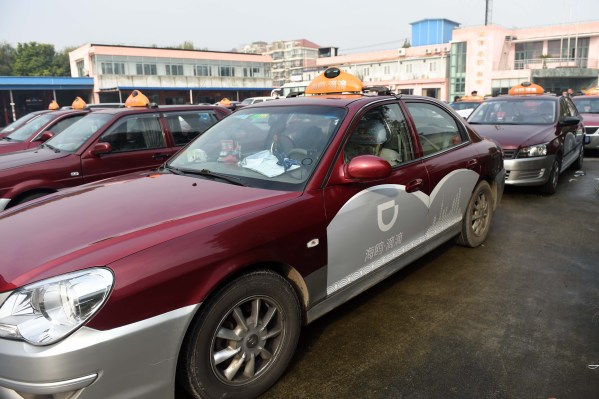There’s good news for foreigners living in, or visiting, China after Didi Chuxing — the local ride-sharing leader — added support for English language and overseas credit cards to its service for the first time.
Didi, which processes more 20 million rides a day across its various services, has always been a tricky one for non-Mandarin speakers and visitors. Personally, I’ve never been able to take a ride when I’ve visited China unless I use a friend’s app. Worse still, Didi removed international language and payment support from the Uber China — which did support English — not long after it announced plans to buy its U.S. rival’s Chinese business. That left no ride-hailing option for non-Mandarin readers.
There’s some relief now since Didi has introduced an English user interface for its three most popular services — ‘Taxi,’ ‘Premier’ private cars, and ‘Express’ pooling — in three initial cities, Beijing, Shanghai and Guangzhou, with more to come soon. Didi said it now supports “major” international credit cards, offers bilingual customer support over email and phone, and enables sign-up via mobile numbers from 12 countries. It also touted “real-time, in-app instant text messaging translation” between driver and passenger to help smooth out language issues, which are commonplace when you deal with taxi drivers in China and are not fluent in the local language. We’ll reserve full judgement until we are able to test these new options in the wild.
Although some of these features have been tested in beta since February, Didi didn’t comment on when it will enable similar options in the Uber China app.
Didi made its name operating in China, despite making investments in Uber competitors in the U.S., India, Southeast Asia and South America, but recently it confirmed it is working on an international strategy. The firm said its colossal $5.5 billion financing round — completed at a $50 billion valuation last month — will be used to “support its global strategy.” Exacts details of what that actually entails are unclear at this point, but Didi said again that today’s update will “advance” its internationalization plan.
Beyond catering to foreigners living in China — which best estimates tag at just under one million people — today’s news makes it possible for Didi to begin building a brand among non-China-based users. The update itself is unlikely to send non-China residents rushing to the app stores, but the fact that they can at least use the app when they are in the country gives Didi something to market in the future as and when it is ready to.
